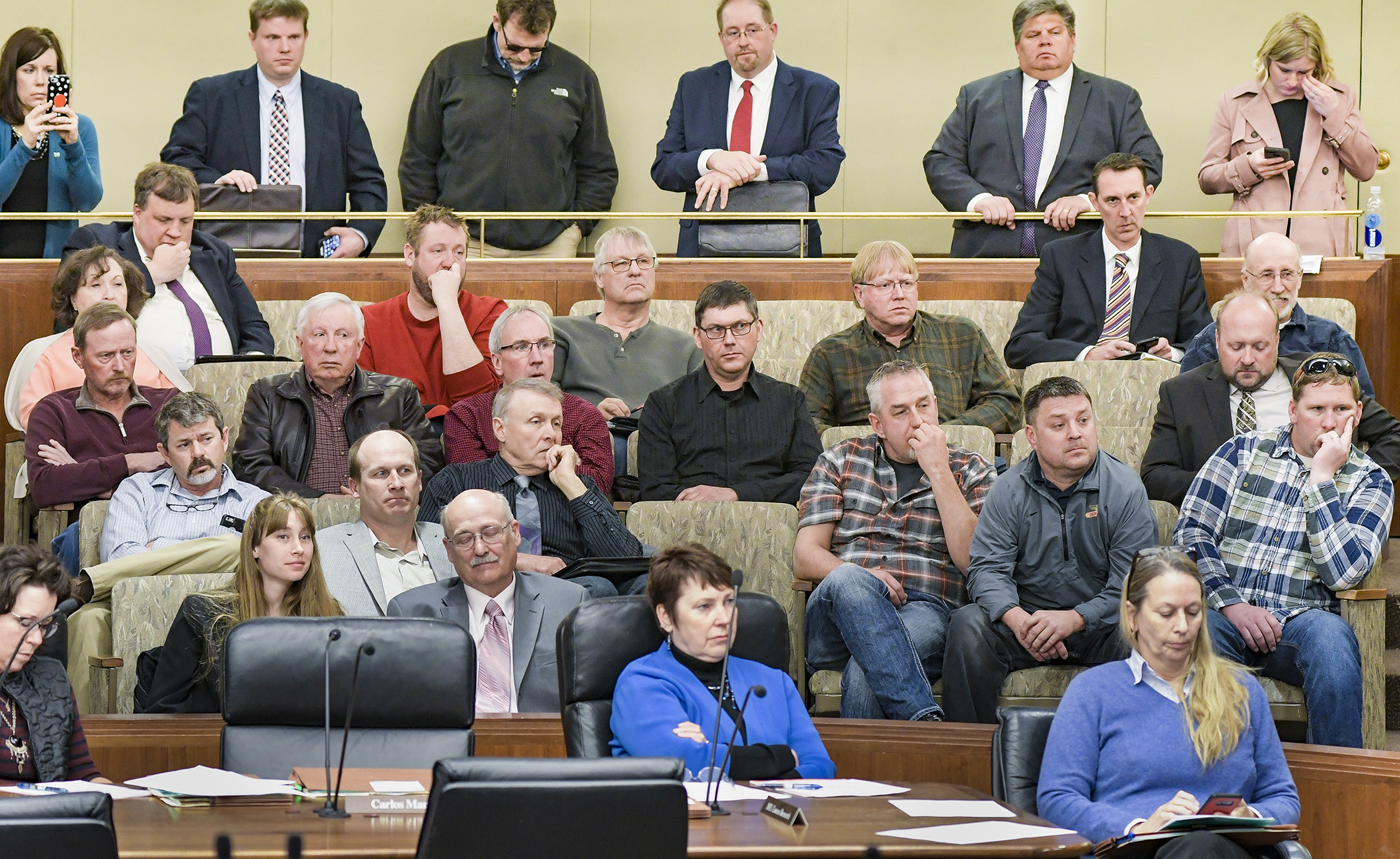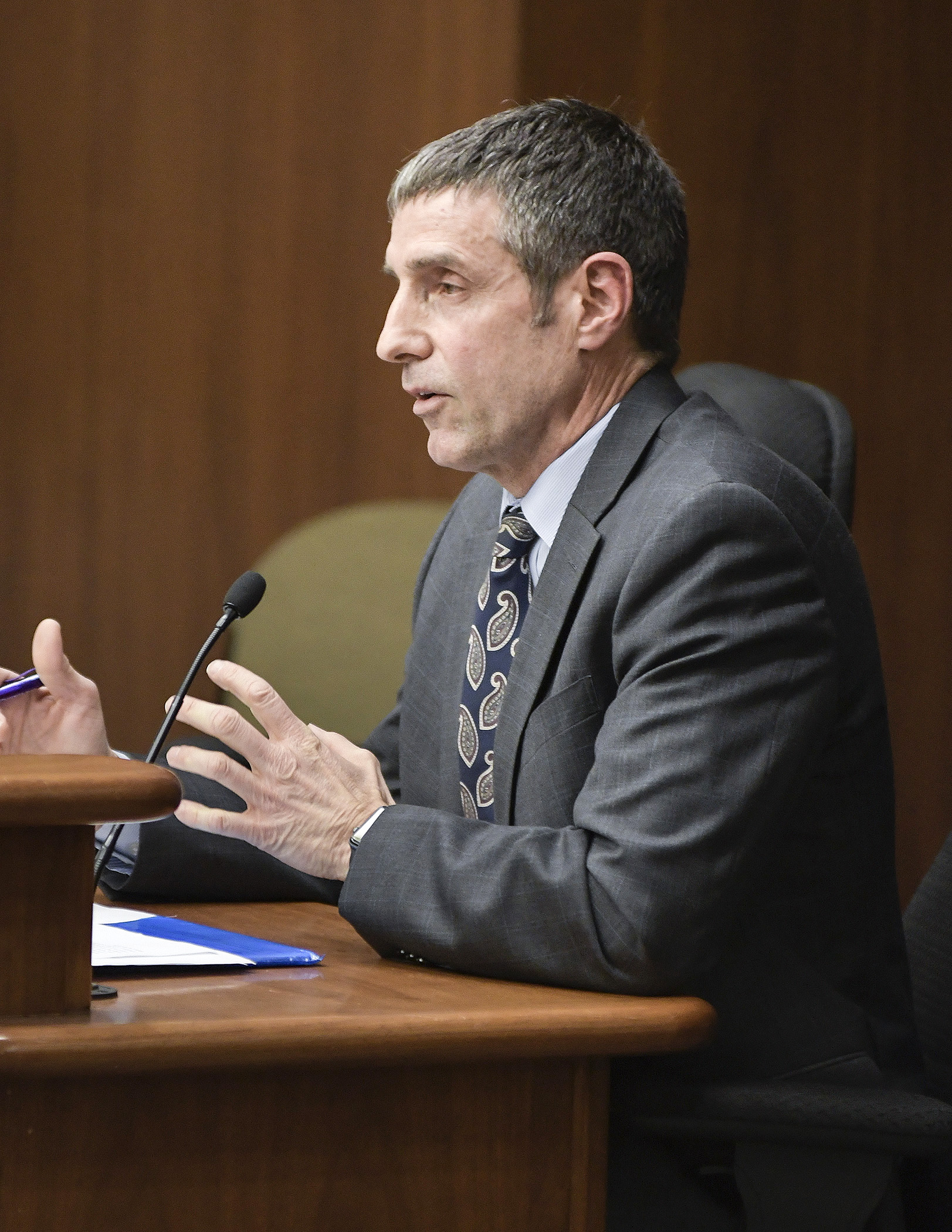Proposed buffer fine draws fierce criticism — and an apology

Monday’s news that the Board of Soil and Water Resources had recently begun considering a stiffer penalty for those who violate new buffer laws drew quick criticism and, within hours, the House Agriculture Policy Committee announced a hearing on the matter.
Although Gov. Mark Dayton subsequently urged the board to reconsider the proposal and BWSR’s Executive Director John Jaschke distributed a letter the next day apologizing and saying he believes “existing options are fully sufficient,” that hearing was held Thursday.
“During the [Easter/Passover] break, BWSR came out with a proposed option for enforcement of the buffer law, and it aroused a lot of concern and comment and such,” said Rep. Paul Anderson (R-Starbuck), the committee chair. “We wanted to have this hearing today to find out why, and what happened, and also to hear from those affected by this possibility.”
More than a dozen farmers and representatives of farm groups testified against the draft proposal, which would have provided another enforcement option against those found out of compliance with buffer laws. The proposed Administrative Penalty Order would have allowed fines of up to $500 per linear foot on offending buffers, potentially increasing the maximum fine far above the current penalty that can be assessed, which is $500 total.
 John Jaschke, executive director of the state’s Board of Water and Soil Resources, testifies before the House Agriculture Policy Committee April 12 on a proposed administrative penalty order plan for buffer law implementation. Photo by Andrew VonBank
John Jaschke, executive director of the state’s Board of Water and Soil Resources, testifies before the House Agriculture Policy Committee April 12 on a proposed administrative penalty order plan for buffer law implementation. Photo by Andrew VonBank“The draft that went out was not properly vetted or prepared or communicated,” Jaschke said. “That was mistake, and that mistake is my mistake. I want to be very clear about that from the beginning.”
Jaschke, who apologized for the concern the proposal caused, said BWSR had published a public notice seeking input on the proposed change April 2. It was intended as another option local governments could use to ensure compliance with the law, which he said is at 98 percent statewide.
But Jaschke said the board rushed the process and didn’t do enough due diligence and “work upfront” in talking to those who would be affected, including the local authorities that could have used the new penalty.
“We didn’t have enough time to do all of that for one simple reason ... the statute says we are to certify local governments and their ordinances by June in order to provide the state funding that goes to them to carry out that work,” Jaschke said.
Although the 20-member BWSR board was scheduled to vote on the proposed change at a meeting Thursday afternoon, Jaschke spoke as if it would not be adopted, or considered again in the future.
But several committee members expressed concern the proposal had even been contemplated to begin with.
Rep. Dale Lueck (R-Aitkin) wondered if the committee should take a look at how BWSR is organized, “If we’ve really got a proper group of people … we should not be here today.”
WATCH Full video of the House Agriculture Policy Committee hearing on the proposed buffer penalties
Kirby Hettver, president of the Minnesota Corn Growers Association, said that while his organization has supported BWSR’s efforts to improve and implement the buffer law, it had “significant concerns” with the process used to introduce the proposal and the proposal itself.
“Obviously, the massive fines are the wrong remedy,” Hettver said. “Assessing financial penalties up to $500 per linear foot for noncompliance is simply absurd.”
He said the primary reasons some farmers are not in compliance with the current buffer requirements are confusion over what must be done and economic stress, and that additional fines would only add to the problem.
Jaschke said he is committed to finding solutions.
“My dad was a farmer and he said, ‘You make a mistake, you own up to it and you fix it,’” Jaschke said.
Related Articles
Search Session Daily
Advanced Search OptionsPriority Dailies
Ways and Means Committee OKs proposed $512 million supplemental budget on party-line vote
By Mike Cook Meeting more needs or fiscal irresponsibility is one way to sum up the differences among the two parties on a supplemental spending package a year after a $72 billion state budg...
Meeting more needs or fiscal irresponsibility is one way to sum up the differences among the two parties on a supplemental spending package a year after a $72 billion state budg...
Minnesota’s projected budget surplus balloons to $3.7 billion, but fiscal pressure still looms
By Rob Hubbard Just as Minnesota has experienced a warmer winter than usual, so has the state’s budget outlook warmed over the past few months.
On Thursday, Minnesota Management and Budget...
Just as Minnesota has experienced a warmer winter than usual, so has the state’s budget outlook warmed over the past few months.
On Thursday, Minnesota Management and Budget...